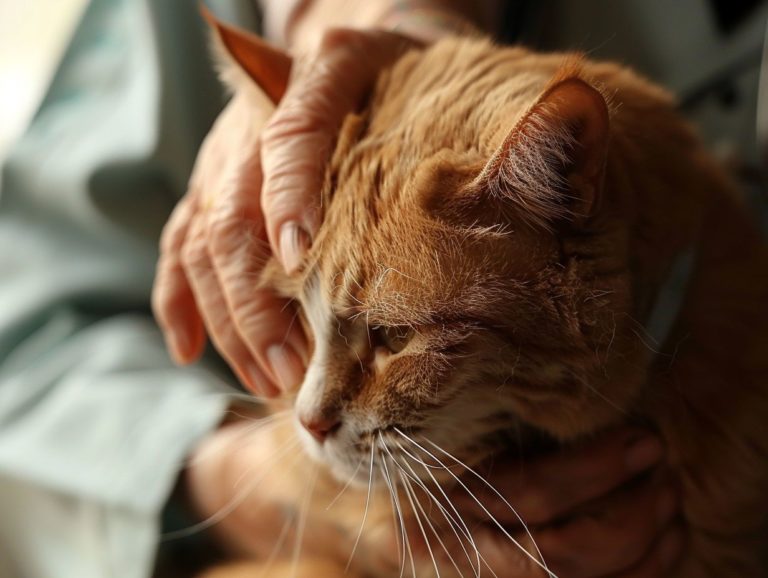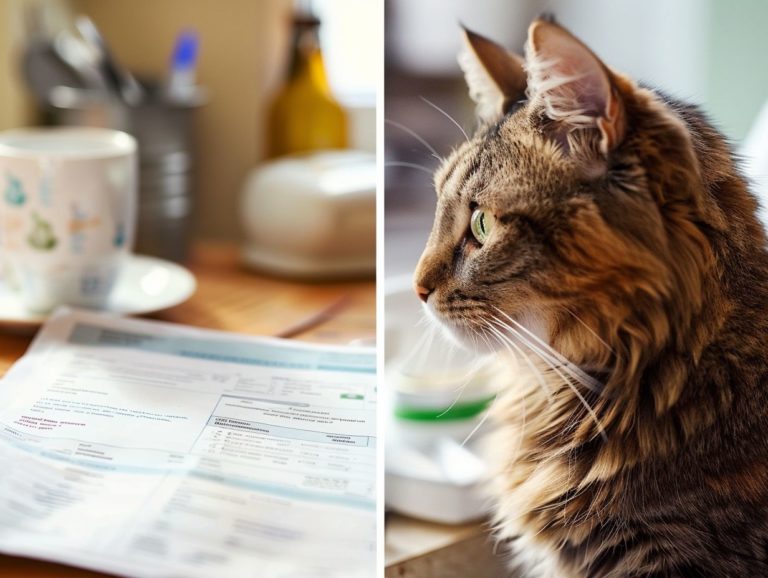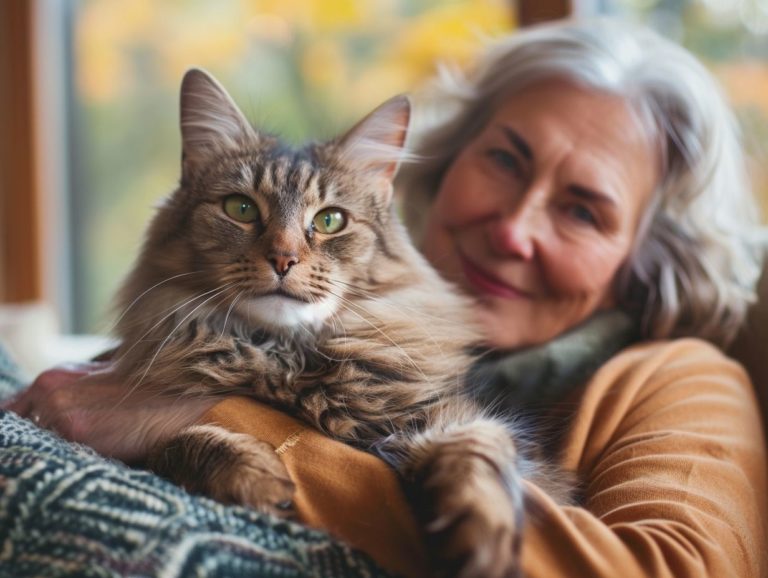The Role Of Deductibles In Senior Cat Insurance Plans
As senior cats age, their healthcare needs become more complex and costly. This article will explore the significance of senior cat insurance and the role deductibles play in these plans.
Specifically, we will delve into the definition of deductibles, their importance, and the impact they can have on your premiums. Additionally, this article will address factors to contemplate when selecting a deductible, strategies to manage them, and how to find the optimal balance between coverage and cost for your senior cat.
Key Takeaways:
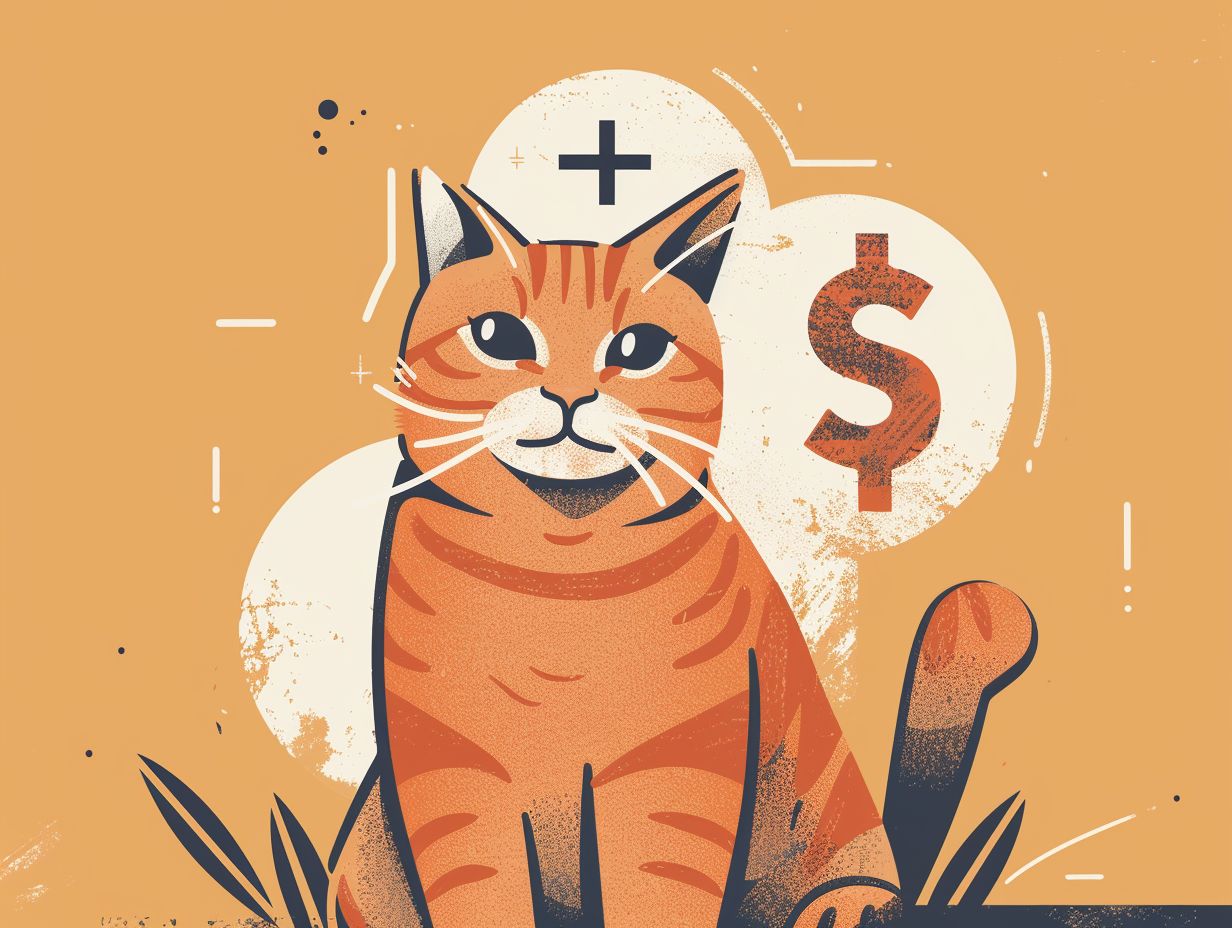
Understanding Senior Cat Insurance
Senior Cat Insurance aims to assist pet owners in financing the healthcare necessary to ensure the health and well-being of their aging cats. This type of insurance is crucial because the expenses for veterinary care and other medical services for felines typically increase as they age.
Senior cat insurance policies offer coverage options tailored for senior cats, including coverage for chronic conditions, dental care, and prescription medications that are more common as cats age. Reimbursement levels for senior cat insurance policies can vary, with some policies providing up to 90% coverage of eligible expenses.
Certain insurers offer customizable deductible amounts, allowing pet owners to select a level that aligns with their budget while still offering the desired level of coverage. Senior Cat Insurance addresses common veterinary expenses associated with older cats, such as arthritis treatment, dental cleanings, and senior wellness exams, illustrating how this insurance helps pet owners manage the costs of their cat’s healthcare.
What is Senior Cat Insurance?
Senior Cat Insurance is a specialized pet insurance policy designed to cater to the specific healthcare needs of aging cats. It offers coverage for a wide range of veterinary expenses, including treatments, medications, and preventive care throughout the policy year.
As cats grow older, they are more prone to developing age-related ailments that demand specialized veterinary attention. Insurance plans for senior cats typically include coverage for chronic conditions such as arthritis, diabetes, and kidney disease, ensuring that pet owners can afford necessary medical treatments without financial burdens.
These policies often come with customizable term options, enabling pet owners to select coverage tailored to the healthcare requirements of their senior feline companions. Insurers acknowledge the significance of offering tailored coverage for senior pets and provide comprehensive solutions to support the healthcare needs of aging feline companions.
The Importance of Deductibles
The importance of deductibles in pet insurance policies is crucial in determining the financial risk and reimbursement levels for pet owners. Deductibles are initial out-of-pocket amounts paid by pet owners that must be met before the pet insurance company begins reimbursing the costs of veterinary care. These deductibles are a primary means of setting the cost-sharing parameters between pet owners and insurance companies.
There are different types of deductibles that can be included in pet insurance policies, each with different implications. For example, an annual deductible is a fixed amount that pet owners must spend in one year before the policy will start paying out; a per-incident deductible is applied each time a new injury or illness occurs; a per-condition deductible is used for specific health conditions. Choosing the right amount of deductible is crucial as it directly influences the cost of the premium and the level of financial loss protection that pet owners benefit from.
What are Deductibles and Why are They Important?
Deductibles in pet insurance refer to the predetermined portion that a policyholder must pay out of pocket before the insurer contributes to the reimbursement of veterinary expenses. The significance of deductibles lies in their impact on deductible amount, reimbursement rates, and overall financial predictability throughout the policy year.
Understanding the role of deductibles in pet insurance policies can help pet owners comprehend their financial responsibilities when seeking veterinary care for their pets. Insurers set deductible amounts to strike a balance in cost-sharing with policyholders, while also mitigating moral hazard by encouraging pet owners to claim small expenses only when necessary.
Once the pet owner has met their deductible amount, the insurer will cover eligible expenses up to the policy’s maximum limit, thereby alleviating the financial burden on the pet owner and providing some predictability regarding potential financial liabilities.
Factors to Consider when Choosing a Deductible
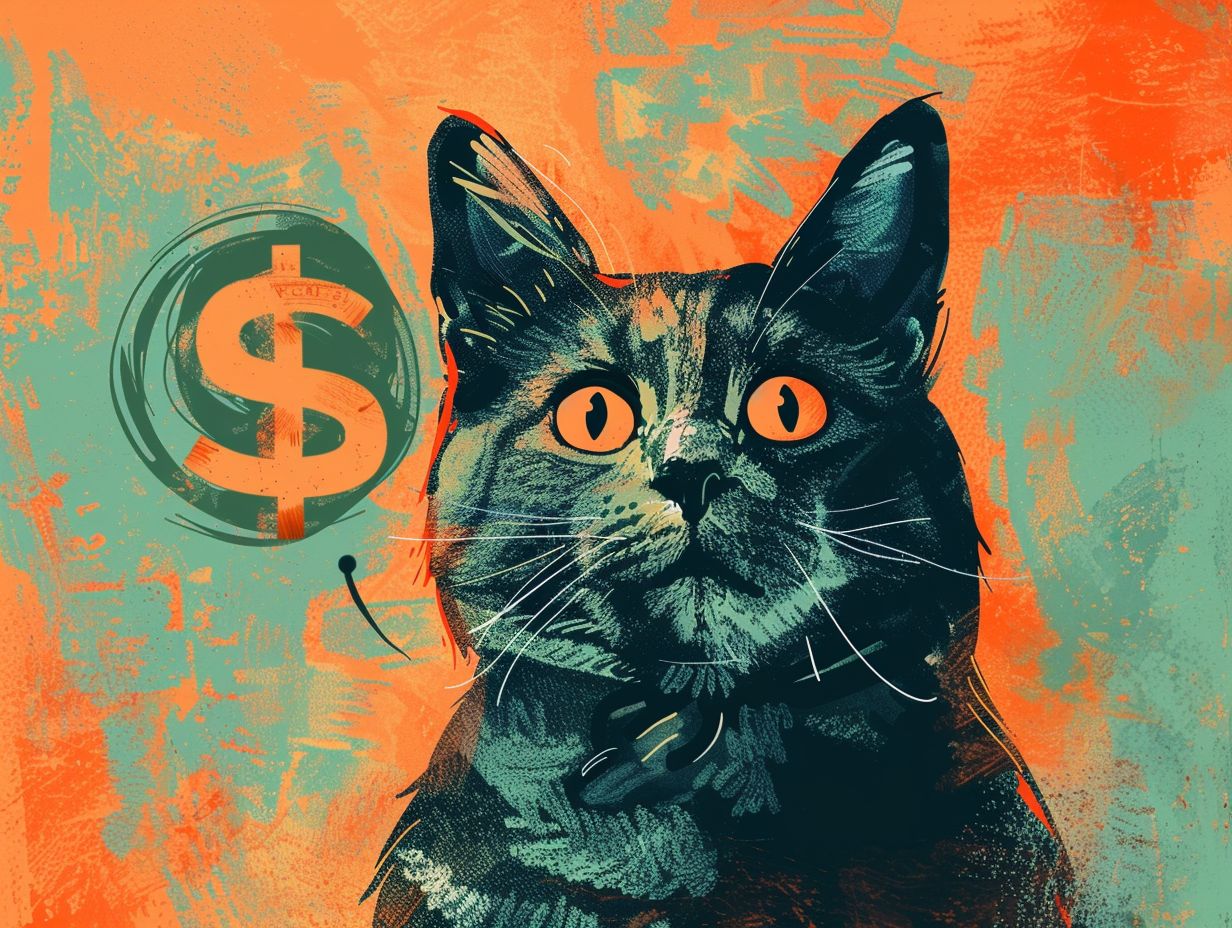
When choosing a deductible for your pet insurance policy, it is crucial to consider several key factors to ensure that the coverage is sufficient for your pet’s medical needs and fits within your budget. There are various deductible options available, and they can significantly influence the cost of the premium. The deductible represents the amount of covered expenses that you, as the pet owner, must pay before the insurance coverage comes into effect. Generally, opting for higher deductibles leads to lower premiums but requires you to cover higher costs out-of-pocket before the insurance coverage becomes applicable. On the other hand, selecting lower deductibles results in higher premiums but covers a portion of the medical expenses at lower cost levels.
Age and Health of Your Senior Cat
When deciding on the most appropriate deductible for your pet’s insurance policy, the age and health of your senior cat are key considerations. Opting for a lower deductible may be more suitable for older cats or cats with existing health issues to effectively manage potential veterinary costs.
Older cats are particularly prone to health conditions like arthritis, dental issues, and kidney disease. By selecting a lower deductible, pet owners can ensure they are financially equipped to meet the necessary care requirements of their aging feline companions. It is important to choose deductibles that align with the specific health needs of your senior cat to ensure optimal coverage without incurring excessive out-of-pocket expenses.
Tailoring deductibles based on the individual health risks of senior cats can offer greater peace of mind and financial security when unexpected veterinary expenses arise.
Financial Considerations
When considering the ideal deductible range for your senior cat’s insurance policy, financial considerations play a crucial role. Opting for lower premiums and a higher deductible can offer financial benefits to pet owners while ensuring that their cats’ health needs are covered.
Choosing a higher deductible can significantly reduce insurance premiums while still enabling pet owners to provide necessary care for their animals. This approach allows pet owners to balance cost savings with comprehensive coverage, providing flexibility to manage unexpected veterinary expenses without compromising their pets’ health.
Utilizing deductible options effectively can minimize financial uncertainties and enable pet owners to make informed decisions that safeguard both their feline companions and their finances.
How Deductibles Affect Premiums
Understanding how deductibles impact premiums is essential for pet owners to maximize their coverage for senior cats with pet insurance at the most competitive rates. Opting for higher deductibles results in lower monthly premiums, offering financial benefits in the long run. By selecting senior cat insurance with a higher deductible, pet owners can lower their monthly insurance expenses while maintaining the same level of coverage for their aging feline companions. This approach allows pet owners to save money over time, particularly for those with healthy senior cats that require minimal medical attention.
When choosing a deductible, pet owners should take into account their pet’s specific needs and health conditions to strike a balance between cost savings and comprehensive insurance coverage.
Relationship between Deductibles and Premiums
Understanding the relationship between deductibles and premiums in pet insurance helps pet owners grasp the financial implications of different deductible levels. Opting for a higher deductible can result in lower premiums, which is beneficial for pet owners seeking to reduce their pet insurance costs.
When pet owners select a higher deductible, insurance companies typically reduce their monthly premium payments. Older cat owners, with the financial flexibility to cover larger out-of-pocket expenses in case of a claim, may opt for higher deductibles. This approach can lead to savings on premiums in the long term, making pet insurance more cost-effective while still offering essential insurance coverage for senior feline companions.
Tips for Managing Deductibles in Senior Cat Insurance
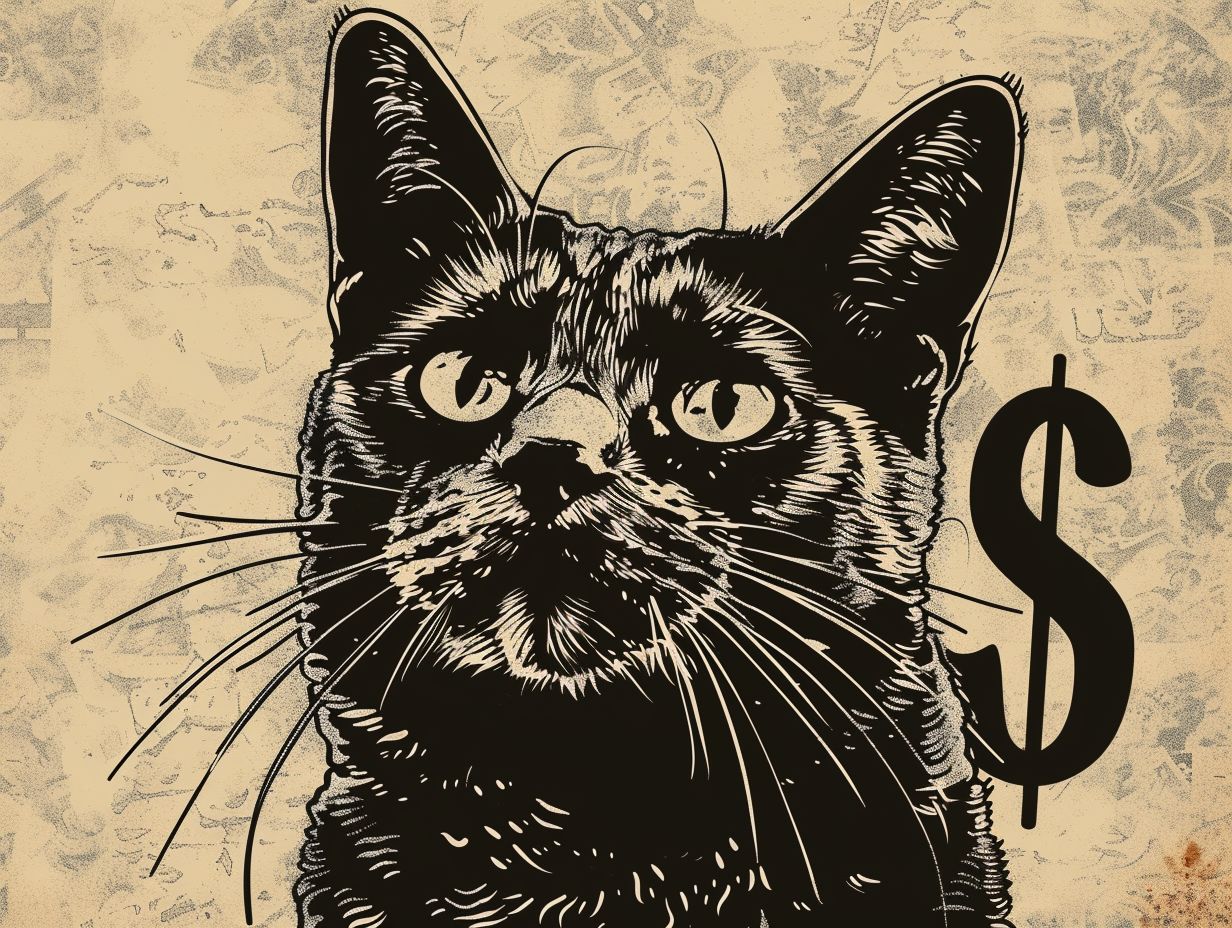
These tips for managing deductibles in senior cat insurance can help pet parents feel financially secure and confident in meeting their senior feline’s healthcare needs. Optimizing deductible levels will maximize reimbursements while ensuring comprehensive pet care. It is crucial for owners of senior cats and can be achieved by considering the cat’s age, any existing health conditions, and anticipated medical needs.
Regularly reviewing the insurance policy will ensure it stays current with the cat’s evolving health requirements. Establishing an emergency veterinary care fund can alleviate financial strain during unforeseen medical emergencies.
Maximizing Coverage while Minimizing Costs
For pet owners seeking comprehensive healthcare coverage for their senior cats without incurring excessive expenses, utilizing wellness exams and grooming services to maximize coverage while minimizing costs is essential.
Regular wellness exams are particularly crucial in preventing the development of serious health issues in senior cats and facilitating early detection and timely treatment of potential problems, thereby reducing overall treatment costs.
Including grooming services in the pet insurance plan can also contribute to maintaining a cat’s overall health and well-being, potentially preventing more severe health issues in the future. By proactively optimizing insurance plans to incorporate these preventive measures, pet owners can ensure optimal care for their senior cats while managing their finances effectively.
Importance of Finding the Right Deductible for Your Senior Cat’s Insurance Plan
Finding the right deductible for your senior cat’s insurance plan is crucial for ensuring financial peace of mind and guaranteed reimbursement for chronic conditions and ongoing medical care costs. By aligning the deductible with your senior cat’s healthcare needs, you can strike a balance between out-of-pocket expenses and covered costs.
Senior cats dealing with chronic conditions such as diabetes or kidney disease may benefit from a lower deductible that can help manage the continuous expenses of treatment. On the other hand, opting for a higher deductible can lower monthly premiums but will require a larger upfront payment before receiving reimbursement from your insurance provider.
Assessing your cat’s current health status and anticipated medical requirements will aid in selecting the most suitable deductible for your situation.
Frequently Asked Questions
What is the role of deductibles in senior cat insurance plans?
Deductibles are a set amount of money that a pet owner is responsible for paying before their insurance coverage kicks in. This means that the role of deductibles in senior cat insurance plans is to share the cost of treatment with the insurance company.
Why are deductibles important in senior cat insurance plans?

Deductibles help insurance companies manage the risk of insuring senior cats, who are more likely to have health issues. By requiring pet owners to pay a portion of the treatment cost, deductibles help keep insurance premiums more affordable.
How much should I expect to pay for deductibles in a senior cat insurance plan?
The amount of deductibles in senior cat insurance plans can vary depending on the insurance provider and plan chosen. Typically, deductibles can range from $100 to $500 per year.
Do all senior cat insurance plans have deductibles?
Not all senior cat insurance plans have deductibles, but it is a common feature. Some plans may offer a zero-deductible option, but this typically comes with a higher monthly premium.
Can I choose my deductible amount in a senior cat insurance plan?
Yes, most pet insurance companies offer a range of deductible options for senior cat insurance plans. Generally, the higher the deductible, the lower the monthly premium will be.
Will my deductible reset every year in a senior cat insurance plan?
Yes, deductibles typically reset every policy year in a senior cat insurance plan. This means that even if you have met your deductible for the current year, you will need to meet it again in the next year before your insurance coverage begins.

